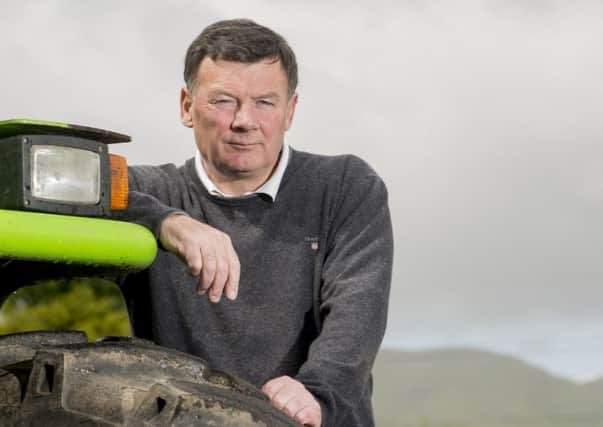NFUS keeps up pressure over post-Brexit support


NFU Scotland representatives met the secretary of state for Scotland, David Mundell, to push their agenda for life outside the European Union.
Speaking after the meeting, held on a farm outside Haddington, union president Allan Bowie stated that they had stressed how important it was that agriculture did not become “the bargaining chip” when new trade deals were sought and the future relationship with Europe negotiated.
Advertisement
Hide AdAdvertisement
Hide Ad“Farming and crofting is the bedrock of the UK’s food and drink industry and that is the biggest manufacturing sector that we have,” Bowie said. “Getting the future agricultural policy right affects more than just farmers and crofters.”
He added that this would be critical for “hundreds of thousands of jobs in food and drink manufacturing”.
Bowie admitted the UK Treasury’s announcement last week that direct support payments – Pillar one in Euro speak – would be maintained to 2020 had already delivered on one of the ten union demands.
He now wanted to see similar positive assurances on the rest, as these would provide security for the provenance of Scottish produce as well as sending a clear message of support to EU citizens working in Scotland.
The union also tried to clear up the current uncertainty on how the support cash would be delivered in the future. “While the UK government’s intention is that devolved administrations should get the same money as would otherwise have come to them had the UK remained in the EU we need to know how the UK government will do this,” he said.
Clarity was also needed on the future of indirect payments, with Bowie pointing out there has been no financial commitment made for rural development – Pillar two support – including the less favoured area support scheme, which delivered more than £60 million into the hill and island communities last year. There has, he added, been no mention of how agri-environment schemes will operate in the future.
Mundell said that many of the issues raised by the union would form part of the negotiations themselves but he would try to get the best deal he could for Scotland.
He added that he recognised the important role migrant labour played in both Scottish agriculture and the wider food processing industry.
